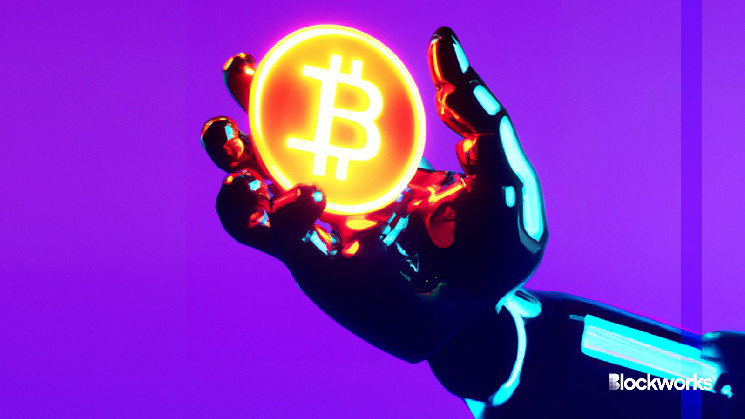Bitcoin’s price only needs to rise about 25% to retest the all-time highs set in November 2021.
But stacks ($STX), another cryptocurrency in Bitcoin’s orbit, may get there first after an explosive 400% rally since October. Bitcoin itself almost doubled in value during that time.
$STX is the native token for Bitcoin-adjacent blockchain Stacks. As of now, $STX is less than 17% away from its own price record, which it hit around bitcoin’s $69,000 top.
In fact, out of 300 cryptocurrencies to reach all-time highs during the 2021 to 2022 bull market, $STX is the nearest to retesting its peak.
Bitcoin ($BTC) is a close second, followed by Sky Mavis’ ronin (RON), which is 32% away, and ether ($ETH), still down more than 41% from all-time high.
Read more: Sui price triples in 3 months, signals changing of the guard in DeFi
Stacks is by all accounts its own blockchain. But Stacks has also been positioned as a layer-2 network for Bitcoin that aims to support core DeFi features found in other blockchain ecosystems, like Ethereum and Solana.
Users can issue tailor-made cryptocurrencies on Stacks in the same vein as ERC-20 tokens, as well as stablecoins, wrapped bitcoin and NFTs. Stacks also supports a decentralized exchange and a liquid staking protocol.
Outside of the possibility to earn a bitcoin yield on $STX staked as part of the consensus process, Stacks’ connection to Bitcoin is somewhat similar to the relationship between layer-2s Arbitrum and Optimism and their parent chain Ethereum.
Transactions are first processed on Stacks by its own set of validators, also known as miners, who later periodically write block header data to the Bitcoin blockchain through the OP_RETURN field.
This effectively turns Bitcoin into both a settlement and a data availability layer for the Stacks ledger. Technically, Bitcoin miners, at the same time as adding blocks to the Bitcoin blockchain, cryptographically verify the history of transactions that first happened on Stacks.
This leaves little room for bad actors to tamper with the transaction history on Stacks after the fact — as that would mean tampering with the Bitcoin ledger itself through unlikely collusion or prohibitively expensive 51% attack.
$STX, meanwhile, is used to pay for the Stacks-equivalent of Ethereum gas fees.
Stacks prepares major upgrade with ‘Nakamoto Release’
Stacks’ pitch essentially boils down to the idea that Bitcoin’s “digital gold” narrative has led holders to sit on their capital, rather than actually use it.
Anyone with loads of $ETH can use it to earn more crypto. They can lend it to generate interest, provide liquidity on trading platforms in return for yield, or even spend it directly to invest in NFTs or token sales.
If Bitcoiners could do the same with their $BTC — with as little trust as possible — then perhaps the oldest blockchain might develop its own deeply-capitalized digital asset economy.
Growing interest around Stacks (and $STX) comes as network participants prepare to vote on an ambitious set of updates, known collectively as the Nakamoto Release, before the Bitcoin halving in April.
The upgrade would, among other improvements, speed up transactions and introduce a new bitcoin-pegged token, sBTC, described as a trustless way to port value held in $BTC over to the Stacks network and its budding DeFi protocols.
So far, all that building does seem to be attracting users. There were less than 1,000 addresses using Stacks each day at the end of last year and according to Artemis data there’s now nearly 4,000.
Other projects with more-or-less the same goal include Blockstream’s Liquid Network and, as of earlier today, an unnamed Justin Sun side project under the Tron umbrella.
 blockworks.co
blockworks.co
